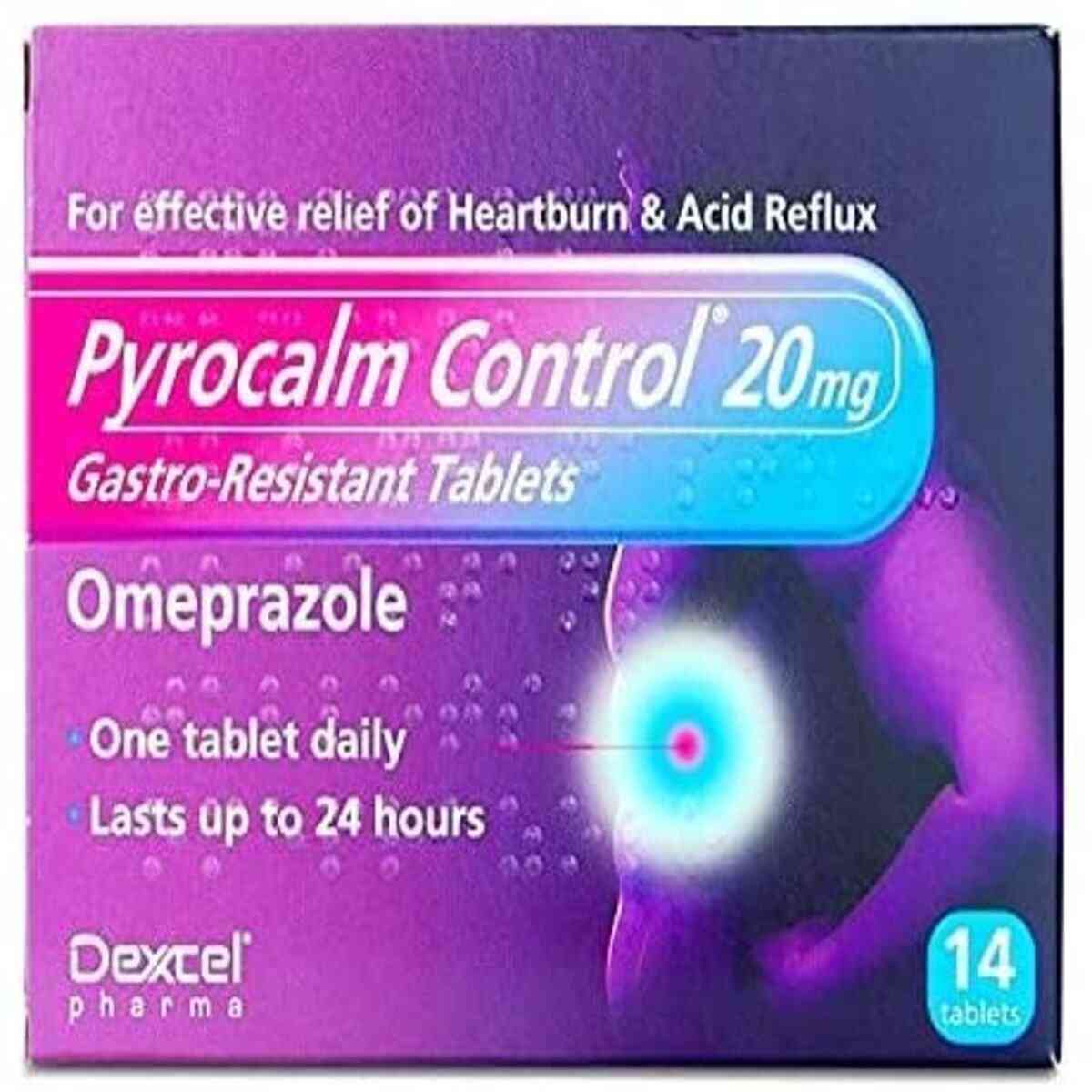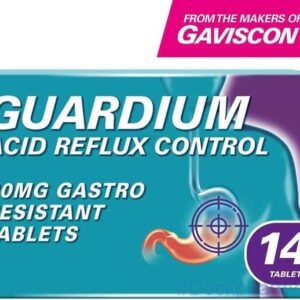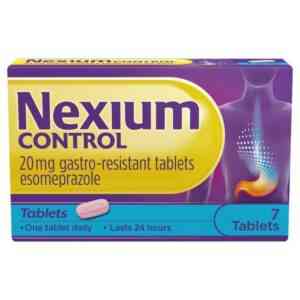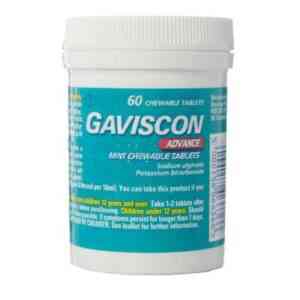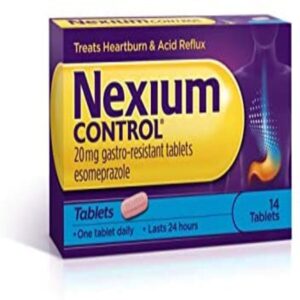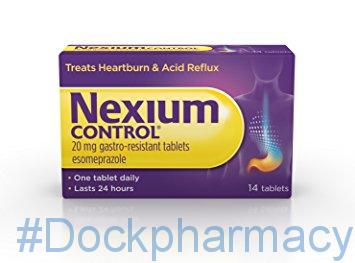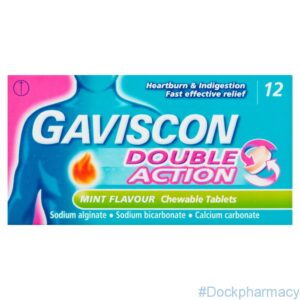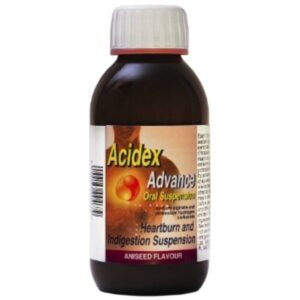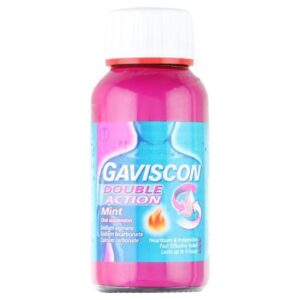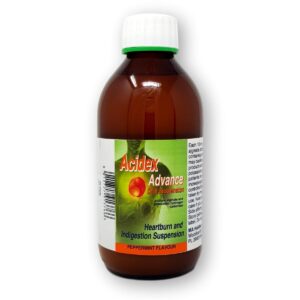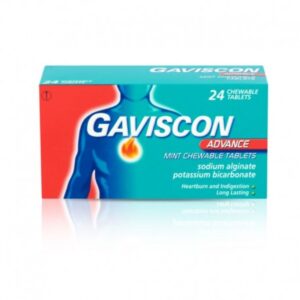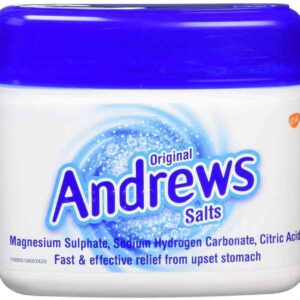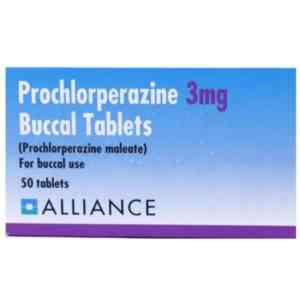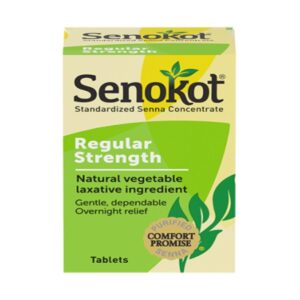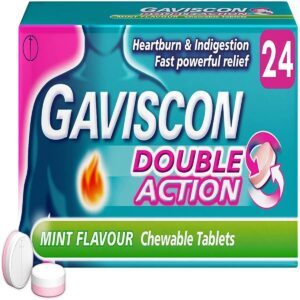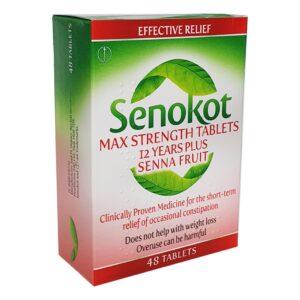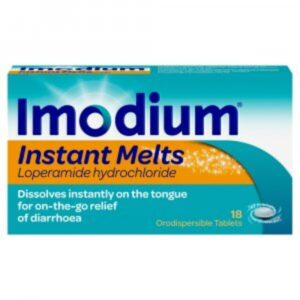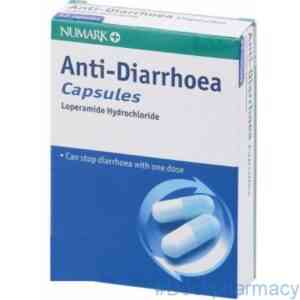Pyrocalm Control 20mg Tablets – Omeprazole 20mg, 14 Tablets
- Short term relief from acid-reflux symptoms
- Treats heartburn and indigestion
- Lasts Up To 24 Hours
- Suitable for Adults
- Active Ingredients: Omeprazole 20mg
- Short-term treatment of reflux symptoms (e.g. heartburn, acid regurgitation) in adults.
- Over the counter Omeprazole 20mg.
- One A Day dosage
Original price was: £10.99.£9.99Current price is: £9.99.
CompareCompare- Short-term treatment of reflux symptoms (e.g. heartburn, acid regurgitation) in adults.
- Over the counter Omeprazole 20mg.
- One A Day dosage
Pyrocalm Control 20mg Tablets – Omeprazole 20mg, 14 Tablets
Introducing Pyrocalm Control 20mg Gastro-Resistant Tablets, the fast and easy way to treat reflux symptoms. If you’re one of the millions of people who experience heartburn and acid reflux, then you know how uncomfortable and frustrating these symptoms can be. Pyrocalm Control 20mg Gastro-Resistant Tablets are a fast and easy way to get relief from your reflux symptoms. Formulated with omeprazole 20mg, Pyrocalm Control 20mg Gastro-Resistant Tablets work to inhibit stomach acid production, giving you quick and long-lasting relief from your reflux symptoms. So don’t suffer any longer – try Pyrocalm Control 20mg Gastro-Resistant Tablets
What is heartburn and Acid Reflux?
When acid from your stomach travels up into your oesophagus, it can cause a burning sensation in the chest. The burning feeling in your chest is caused by stomach acid traveling up towards the throat (acid reflux).
Heartburn is a burning feeling in the chest caused by stomach acid traveling up towards your throat (acid reflux). If it keeps happening, then you might have gastro-oesophageal reflux disease.
Benefits of Pyrocalm Control 20mg Tablets
Treat Indigestion: This medicine contains the active substance omeprazole 20mg. It belongs to a group of medicines called ‘proton pump inhibitors. It works by reducing the amount of acid that your stomach produces. The tablets are used in adults for the short-term treatment of reflux symptoms (for example, heartburn, and acid regurgitation).
Heartburn Treatment: Delayed-release heartburn medicine, clinically proven to treat frequent heartburn, that painful, burning sensation in the lower chest or throat that occurs when stomach acid backs up.
Acid Reducer: When taken as directed, reduce heartburn by deactivating acid-producing pumps in the stomach lining to inhibit acid production at the source.
Recommendations: It is recommended that you should take your tablets in the morning. You can take your tablets with food or on an empty stomach. Always take this medicine exactly as described in this leaflet or as your doctor or pharmacist has told you.
Pyrocalm Control is not meant to bring immediate relief. It might be necessary to take the tablets for 2-3 consecutive days to achieve improvement of symptoms.
Pyrocalm Control 20mg Tablets Reviews
After using Pyrocalm Control 20mg Tablets, it’s helpful to let others know about your experience. Reviews of an item help other users know that medicines received have helped the condition it is claimed for, how well the treatment worked or any issues to be aware of. We invite our users to leave a review of both their treatment and of the service provided. Click on the reviews tab to see if there has been feedback on this item.
What is the price of Pyrocalm Control 20mg Tablets?
The price of Pyrocalm Control 20mg Tablets is £9.99
Where can you buy Pyrocalm Control 20mg Tablets?
You can buy Pyrocalm Control 20mg Tablets at Dock Pharmacy Essex UK, UK Online Pharmacy.
Can you buy Pyrocalm Control 20mg Tablets Over the counter?
Pyrocalm Control 20mg Tablets is available to buy over the counter.
Patient Information leaflet Click here
Brand
Pyrocalm
How To Use
HOW TO TAKE PYROCALM CONTROL TABLETS
Always take this medicine exactly as described in this leaflet or as your doctor or pharmacist have told you. Check with your doctor or pharmacist if you are not sure.
The recommended dose is one 20 mg tablet once a day for up to 14 days. Contact your doctor if you are not free from symptoms after this period.
It might be necessary to take the tablets for 2-3 consecutive days to achieve improvement of symptoms. Do not take more than the recommended dose (one 20mg tablet a day) even if you don’t feel an improvement immediately.
When your reflux symptoms have gone completely you should stop taking this medicine.
Taking this medicine
- It is recommended that you take your tablets in the morning.
- You can take your tablets with food or on an empty stomach.
- Swallow your tablets whole with half a glass of water. Do not chew or crush the tablets. This is because the tablets are coated with enteric coating which stops the medicine from being broken down by the acid in your stomach. The tablets release the active ingredient in the intestine, where it is absorbed by your body to give an effect.
If you take more Pyrocalm Control Tablets than you should
If you take more tablets than recommended, talk to your doctor or pharmacist straight away. You may experience symptoms such as diarrhoea, stomach ache, feeling or being sick, dizziness, headache, depression, confusion and apathy (lack of motivation).
If you forget to take Pyrocalm Control Tablets
If you forget to take a dose, take it as soon as you remember it on the same day. Do not take a double dose to make up for a forgotten dose.
If you have any further questions on the use of this medicine, ask your doctor or pharmacist.
Warning
WHAT YOU NEED TO KNOW BEFORE YOU TAKE PYROCALM CONTROL TABLETS
Do not take Pyrocalm Control Tablets
- If you are allergic (hypersensitive) to omeprazole or any of the other ingredients of this medicine (listed in section 6).
- If you are allergic to medicines containing other proton pump inhibitors (e.g. pantoprazole, lansoprazole, rabeprazole, esomeprazole).
- If you are taking a medicine containing nelfinavir (used for HIV infection).
Do not take Pyrocalm Control Tablets if any of the above applies to you. If you are not sure, talk to your doctor or pharmacist before taking this medicine.
Warnings and precautions
Tell your doctor before taking this medicine, if:
- You are due to have a specific blood test (Chromogranin A)
- You are due to have an endoscopy or a urea breath test
- Your body does not absorb vitamin B12 (cobalamin) very well
Do not take this medicine for more than 14 days without consulting a doctor. If you do not experience relief, or if you experience a worsening of symptoms, consult your doctor.
This medicine may hide the symptoms of other diseases. Therefore, if any of the following happen to you before you start taking these tablets or while you are taking them, talk to your doctor straight away:
- You lose a lot of weight for no reason and have problems swallowing.
- You get stomach pain or signs of indigestion (such as nausea, fullness, bloating especially after food intake).
- You begin to vomit food or blood.
- You pass black stools (blood-stained faeces).
- You experience severe or persistent diarrhoea, as omeprazole has been associated with a small increase in infectious diarrhoea.
- You have had previous gastric ulcer or gastrointestinal surgery.
- You are on continuous symptomatic treatment of indigestion or heartburn for 4 or more weeks.
- You continuously suffer from indigestion or heartburn for 4 or more weeks.
- You have jaundice or severe liver disease.
- You are aged over 55 years with new or recently changed symptoms.
- You have ever had a skin reaction after treatment with a medicine similar to Pyrocalm Control Tablets that reduces stomach acid.
If you get a rash on your skin, especially in areas exposed to the sun tell your doctor as soon as you can, as you may need to stop your treatment with this medicine. Remember to also mention any other ill-effects like pain in your joints.
Seek urgent medical attention if you experience chest pain with lightheadedness, sweating, dizziness or shoulder pain with shortness of breath. This could be a sign of a serious condition with your heart.
Do not take this medicine if you do not have symptoms of reflux (e.g. heartburn or acid regurgitation).
Children and adolescents
This medicine should not be used by children and adolescents under 18 years of age.
Other medicines and Pyrocalm Control Tablets
Please tell your doctor or pharmacist if you are taking or have recently taken any other medicines, including medicines obtained without a prescription. This is because this medicine can affect the way some medicines work and some medicines can have an effect on these tablets.
Do not take this medicine if you are taking a medicine containing nelfinavir (used to treat HIV infection).
You should specifically tell your doctor or pharmacist if you are taking clopidogrel (used to prevent blood clots (thrombi)).
Do not take this medicine with other medicines that limit the amount of acid produced in your stomach such as other proton pump inhibitors (e.g. pantoprazole, rabeprazole or esomeprazole) or an H2 antagonist (e.g. ranitidine or famotidine). You may take this medicine with antacids (e.g. alginic acid, sodium bicarbonate, aluminium hydroxide, magnesium carbonate or combinations of these) if needed.
Tell your doctor or pharmacist if you are taking any of the following medicines:
- Ketoconazole, itraconazole, posaconazole or voriconazole (used to treat infections caused by a fungus)
- Clarithromycin (used to treat infections)
- Digoxin (used to treat heart problems)
- Diazepam (used to treat anxiety, relax muscles or in epilepsy)
- Phenytoin (used in epilepsy). If you are taking phenytoin, your doctor will need to monitor you when you start or stop taking this medicine
- Medicines that are used to thin your blood, such as warfarin or other vitamin K blockers. Your doctor may need to monitor you when you start or stop taking this medicine
- Rifampicin (used to treat tuberculosis)
- Atazanavir (used to treat HIV infection)
- Tacrolimus (in cases of organ transplantation)
- St John’s wort (Hypericum perforatum) (used to treat mild depression)
- Cilostazol (used to treat intermittent claudication)
- Saquinavir (used to treat HIV infection)
- Erlotinib (used to treat cancer)
- Methotrexate (a chemotherapy medicine used in high doses to treat cancer) – if you are taking a high dose of methotrexate, your doctor may temporarily stop your treatment with these tablets
Pyrocalm Control Tablets with food and drink
You can take your tablets with food or on an empty stomach.
Pregnancy, breast-feeding and fertility
Before taking this medicine, tell your doctor or pharmacist if you are pregnant or trying to get pregnant. Your doctor will decide whether you can take these tablets during this time. Your doctor will decide whether you can take this medicine if you are breast-feeding. There is no evidence that this medicine has any effect on fertility.
Driving and using machines
This medicine is not likely to affect your ability to drive or use any tools or machines. Side effects such as dizziness and visual disturbances may occur (see section 4). If affected, you should not drive or operate machinery.
Pyrocalm Control Tablets contain Lactose
This medicine contains lactose. If you have been told by your doctor that you have an intolerance to some sugars, contact your doctor before taking this medicinal product.
Side Effetcs
POSSIBLE SIDE EFFECTS
Like all medicines, Pyrocalm Control Tablets can cause side effects, although not everybody gets them.
If you notice any of the following rare but serious side effects, stop taking this medicine and contact a doctor immediately:
- Sudden wheezing, swelling of your lips, tongue and throat or body, rash, fainting or difficulties in swallowing (severe allergic reaction).
- Reddening of the skin with blisters or peeling. There may also be severe blisters and bleeding in the lips, eyes, mouth, nose and genitals. This could be ‘Stevens-Johnson syndrome’ or ‘toxic epidermal necrolysis’.
- Yellow skin, dark urine and tiredness which can be symptoms of liver problems.
- Blood problems such as a reduced number of white cells or platelets. This can cause weakness, bruising or make infections more likely.
This medicine may in very rare cases affect the white blood cells leading to immune deficiency. If you have an infection with symptoms such as fever with a severely reduced general condition or fever with symptoms of a local infection such as pain in the neck, throat or mouth or difficulties in urinating, you must consult your doctor as soon as possible so that a lack of white blood cells (agranulocytosis) can be ruled out by a blood test. It is important for you to give information about your medicine at this time.
Other side effects include:
Common side effects (may affect up to 1 in 10 people)
- Headache.
- Effects on your stomach or gut: diarrhoea, stomach pain, constipation, wind (flatulence).
- Feeling sick (nausea) or being sick (vomiting).
- Benign polyps in the stomach.
Uncommon side effects (may affect up to 1 in 100 people)
- Swelling of the feet and ankles.
- Disturbed sleep (insomnia).
- Dizziness, tingling feelings such as “pins and needles”, feeling sleepy.
- Spinning feeling (vertigo).
- Changes in blood tests that check how the liver is working.
- Skin rash, lumpy rash (hives) and itchy skin.
- Generally feeling unwell and lacking energy.
Rare side effects (may affect up to 1 in 1,000 people)
- Allergic reactions, sometimes very severe, including swelling of the lips, tongue and throat, fever, wheezing.
- Low levels of sodium in the blood. This may cause weakness, being sick (vomiting) and cramps.
- Feeling agitated, confused or depressed.
- Taste changes.
- Eyesight problems such as blurred vision.
- Suddenly feeling wheezy or short of breath (bronchospasm).
- Dry mouth.
- An inflammation of the inside of the mouth.
- An infection called “thrush” which can affect the gut and is caused by a fungus.
- Liver problems, including jaundice which can cause yellow skin, dark urine, and tiredness.
- Hair loss (alopecia).
- Skin rash on exposure to sunshine.
- Joint pains (arthralgia) or muscle pains (myalgia).
- Severe kidney problems (interstitial nephritis).
- Increased sweating.
- Inflammation in the gut (leading to diarrhoea).
Very rare side effects (may affect up to 1 in 10,000 people)
- Changes in blood count including agranulocytosis (lack of white blood cells).
- Aggression.
- Seeing, feeling or hearing things that are not there (hallucinations).
- Severe liver problems leading to liver failure and inflammation of the brain.
- Sudden onset of a severe rash or blistering or peeling skin. This may be associated with a high fever and joint pains (Erythema multiforme, Stevens-Johnson syndrome, toxic epidermal necrolysis).
- Muscle weakness.
- Enlarged breasts in men.
- Hypomagnesaemia (low level of magnesium in the blood).
Not Known (Frequency cannot be estimated from the available data)
- Rash, possibly with pain in the joints.
Do not be concerned by this list of possible side effects. You may not get any of them. If any of the side effects get serious, or if you notice any side effects not listed in this leaflet, please tell your doctor or pharmacist.
Ingredients
What Pyrocalm Control Tablets contain
The active substance is omeprazole.
Pyrocalm Control Tablets contain 20 mg of omeprazole.
The other ingredients are lactose monohydrate, sodium starch glycolate, sodium stearyl fumarate, sodium stearate, hypromellose acetate succinate, brownish pink colour (which contains propylene glycol, titanium dioxide (E171), red iron oxide (E172), hypromellose and yellow iron oxide (E172)), talc, triethyl citrate, monoethanolamine, sodium lauryl sulfate and traces of carnauba wax.
Questions and answers of the customers
There are no questions yet, be the first to ask something for this product.
You Might Also Like
Original price was: £11.99.£10.49Current price is: £10.49.
Guardium Acid Reflux control tablets is for frequent acid reflux and heartburn sufferers. Frequent heartburn can be defined as heartburn symptoms being experienced twice a week or more in the last 4 week
Original price was: £11.99.£10.49Current price is: £10.49.
- Availability: out of stock
Original price was: £7.50.£5.39Current price is: £5.39.
- Easy to swallow
- Just one pill a day for All day 24 hour protection
- Provides relief all day and night
- Treatment for acid reflux
Original price was: £7.50.£5.39Current price is: £5.39.
- Availability: in stock
Original price was: £8.99.£7.19Current price is: £7.19.
- Gets to work instantly.
- long-lasting.
- Suitable for use in pregnancy.
- Sugar and gluten-free.
Original price was: £8.99.£7.19Current price is: £7.19.
- Availability: out of stock
Nexium Control provides 24-hour protection from heartburn and acid reflux
Nexium Control is clinically proven shown to relieve night-time heartburn for a good night’s sleep
Nexium Control will help restore your life to how it should be – heartburn free
Nexium Control reduces stomach acid at the source to provide relief all day and night for long-term control
Nexium Control ingredient Esomeprazole
Nexium Control now available in 3 pack sizes: 7, 14 and 28 tablets
Learn More
£6.99 – £18.90
- Availability: in stock
Other Products From This Seller
Alcohol Swabs – Pre-Injection Swabs, 100 Sterile Isopropyl Alcohol 70% Swabs Ensure optimal hygiene with Alcohol Swabs – Pre-Injection Swabs, 100 (Aero Wipes). These sterile pre-injection swabs are infused with 70% isopropyl alcohol, providing effective disinfection for skin preparation before injections or minor medical procedures. Designed for healthcare professionals and home use, Aero Wipes offer […]
Learn More£1.69
- Availability: in stock
Original price was: £22.40.£20.89Current price is: £20.89.
COLEDOSE D3 4000IU TABLETS
Learn MoreOriginal price was: £22.40.£20.89Current price is: £20.89.
- Availability: in stock
Dydrogesterone 10mg Tablets, 10 Tablets Restore hormonal balance with Dydrogesterone 10mg Tablets (Duphaston), a clinically proven treatment for progesterone deficiency and related conditions. Dydrogesterone, the active ingredient, is a synthetic progesterone that mimics the effects of natural progesterone, offering safe and effective relief from a variety of hormonal imbalances. Trusted by women worldwide, Duphaston 10mg […]
Learn More£46.45
- Availability: in stock
Original price was: £15.29.£13.99Current price is: £13.99.
Voltarol Joint Pain & Back Relief Gel can provide all-day relief from pain & swelling (inflammation) in joints and muscles.
- Long lasting relief of pain and inflammation
- Direct Relief to affected areas
- Non-greasy
- Targeted Relief from Pain and Inflammation in Joints
- One Application in the Morning and Evening for All Day Relief
Original price was: £15.29.£13.99Current price is: £13.99.
- Availability: in stock
Sucralfate Suspension 1g/5ml, 200ml Effective Ulcer Treatment and Stomach Protection Sucralfate Suspension 1g/5ml is a highly effective treatment for stomach ulcers and inflammation, offering targeted relief and protection from further irritation caused by stomach acid. This suspension works by forming a protective barrier over ulcers, allowing them to heal and preventing further damage. Ideal for […]
Learn More£291.20
- Availability: in stock
Fostimon 75IU Injections – Urofollitropin, 10 Vials Promoting Ovulation for Fertility Treatment Fostimon 75IU Injections are specially formulated to aid ovulation in women who are experiencing difficulties conceiving due to a lack of ovulation or have not responded to other fertility treatments, such as clomifene citrate. Fostimon contains Urofollitropin, a highly purified form of human […]
Learn More£448.50
- Availability: in stock
Tolak Cream – Fluorouracil 40mg/g cream, 20g Effective Treatment for Actinic Keratosis (Sun-Damaged Skin) Tackle sun-damaged skin effectively with Tolak Cream (Fluorouracil 40mg/g), specially formulated to treat actinic keratosis (AK) on the face, ears, and scalp in adults. Tolak works by destroying pre-cancerous and cancerous cells on the skin, promoting healing while minimizing damage to […]
Learn More£39.00
- Availability: in stock
Chlorambucil 2mg Tablets, 25 Tablets Target Cancer Effectively with Chlorambucil 2mg Tablets – For Human and Veterinary Use Chlorambucil 2mg Tablets are a potent chemotherapy medication used to treat various types of cancers, including chronic lymphocytic leukemia, Hodgkin’s lymphoma, and non-Hodgkin’s lymphoma. This medication works by inhibiting the growth and spread of cancer cells, making […]
Learn More£28.50
- Availability: in stock
Nutrizym 22 Capsules – Amylase Lipase Digestive Enzymes, 100 Capsules Experience the transformative health benefits with Nutrizym 22 Capsules, your go-to solution for optimal digestive health. Each capsule is expertly formulated with a powerful blend of amylase and lipase enzymes, designed to effectively break down fats, carbohydrates, and proteins in your diet. Perfect for individuals […]
Learn More£49.95
- Availability: out of stock

